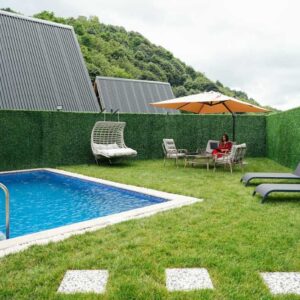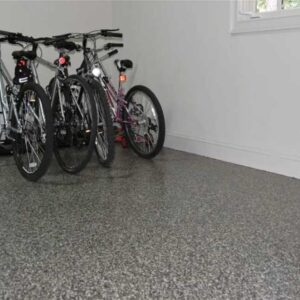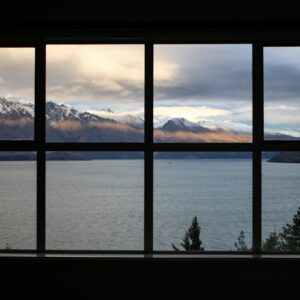Are you facing the massive expenses of a damage repair job on your home?
While this cost may seem high to some, it’s an extra fee to ensure that you’re protected in the event of a catastrophe at home. Thus, ensuring that you’re protected as a homeowner.
Some of the most common natural disasters are covered under home insurance, though you must have a good provider, and policy coverage is not guaranteed.
Today, we’re sharing information about homeowners policies, their coverage, and more. Read on!
Home Structure
A basic homeowners insurance policy usually covers the structure of your home. This includes the walls, floors, ceilings, and any permanent fixtures like built-in cabinets.
If your home is damaged or destroyed by a covered event, like fires, severe weather, theft, and more. Your insurance company will pay to repair or rebuild it up to your policy limit.
Your homeowner’s association’s insurance coverage might cover the exterior of your condo or townhome. However, you’ll still need a separate policy to protect your personal property and interior space if you live in one of these structures.
Personal Belongings
Standard homeowner’s insurance covers personal belongings in the event of damage or theft. Coverage limits may vary, but personal belongings generally cover up to a certain percentage of the home’s insurance limit.
You may have limited coverage for specific items, such as jewelry, art, or collectibles. The range varies depending on the insurer but is a percentage of your policy limit.
If you have high-value items, you may need additional insurance to cover them. Check with your insurer to confirm coverage levels for your personal belongings.
Water Damage From a Burst Pipe
Homeowner’s insurance covers water damage from a burst pipe, although there may be some limitations. The coverage may limit to a certain amount, and the policy may exclude certain types of damage. For example, coverage may limit if the line is outside the home.
Additionally, coverage may deny if the pipe bursts due to negligence on the homeowner’s part. Coverage for water damage from a burst pipe is subject to the policy’s deductible and usually pays for repairs up to the limit of the policy.
The coverage is limited to a certain amount, and the policy may exclude certain types of damage, such as floodwater damage. In addition, the policy may have a deductible that must be met before the coverage kicks in.
The insurer will pay for repairing the pipe and any resulting water damage if coverage is provided. You should contact your insurance company as soon as possible to file a claim f you have a burst pipe.
Your insurance company will likely send an adjuster to inspect the damage and determine the cost of repairs.
Additional Expenses Coverage
There are several things that standard homeowner’s insurance covers and one of those things is additional expenses coverage. This is money spent on things like food and lodging when you are unable to live in your home because of damage to it.
This coverage is to help you keep up with your mortgage payments and other necessary expenses while your home is being repaired or rebuilt.
If you need more coverage than your policy provides, you can buy an endorsement or a separate policy to cover the additional costs.
Liability Coverage
Liability coverage is one of the most important types of coverage in a homeowner’s insurance policy. It protects you from financial damages that you may hold responsible for if someone gets injured on your property or if you damage someone else’s property.
This can include guests, workers, or passersby. It may also cover family members who live with you. The medical payments portion of your policy can help pay for emergency care, hospitalization, surgery, and other medical expenses and it may also cover dental care and funeral costs.
This type of homeowners coverage is essential because it can help you avoid paying out of pocket for these expenses, which can be significant. Your homeowner’s policy will cover medical costs and property damage up to a specific limit, and you may be able to purchase additional coverage if you feel you need it.
It is essential to understand the limits of your policy and what types of events cover to protect yourself. You may click here to get a home insurance quote and ensure you have the protection you need.
Dwelling
Dwelling coverage is one of the six types of coverage included in a standard homeowner’s insurance policy. It helps protect your home’s physical structure, as well as any attached structures, like a detached garage or gazebo.
If your home is damaged by a covered peril, like a fire or severe weather, dwelling coverage can help pay to repair or rebuild it.
Homeowners should check with their insurers to see what is and is not covered. The dwelling coverage limit is a percentage of the dwelling coverage limit on the homeowner’s policy.
For example, if the dwelling coverage limit is $250,000 and the policy has a dwelling limit of 80%, the coverage for the dwelling would be $200,000.
Personal Property
Most homeowners insurance policies cover personal property, which defines as items that are not attached to the structure of the home. This includes furniture, clothing, electronics, appliances, and more.
Most policies cover personal property up to a certain amount and may have limits on certain items. It’s essential to read your policy to understand what is and is not covered.
You can purchase additional insurance to protect your belongings if you need more home coverage than your policy provides. You can always ask your insurance agent for more information if you have questions.
Learn More About Homeowners Policies Today
Standard homeowners policies cover the physical structure of your home and your personal belongings. It can also protect you if someone injures you while on your property.
Most homeowners insurance policies cover four main types of perils: fire, windstorm, theft, and lightning. Most policies also cover liability and medical payments.
Review your homeowner’s policies and discuss your coverage with your agent to ensure you are fully protected.
Remember to check out our other helpful articles about a variety of topics!





